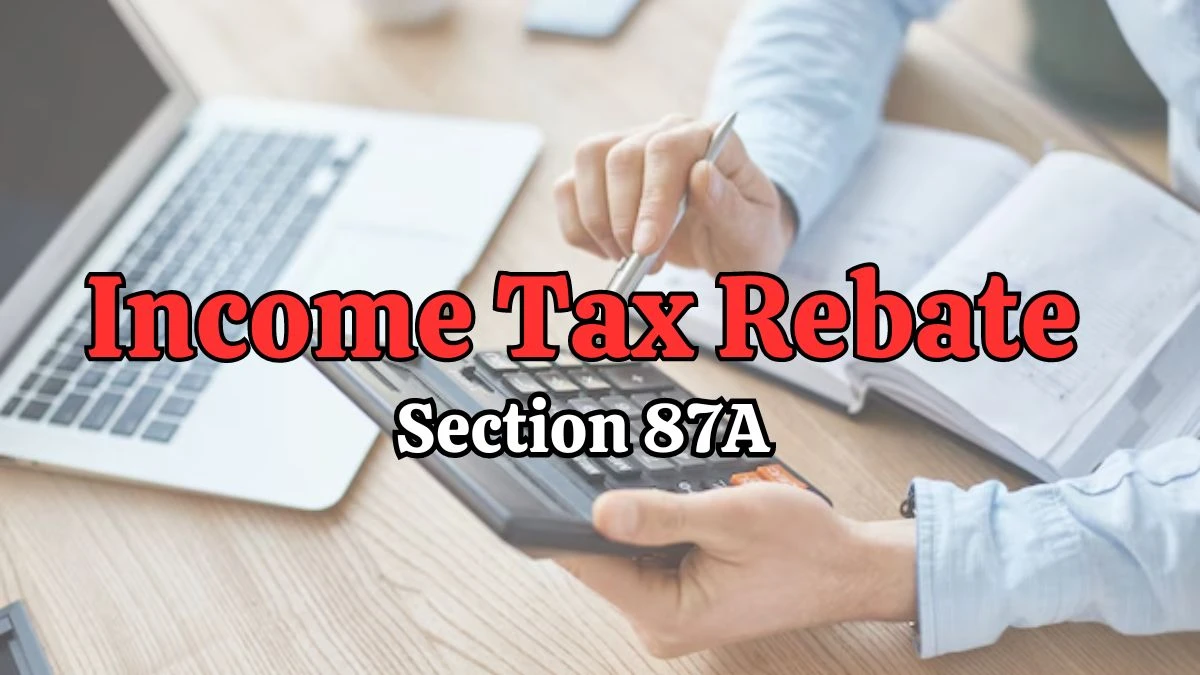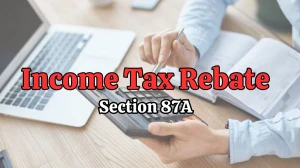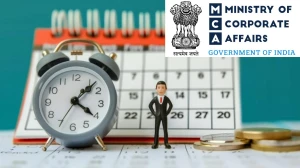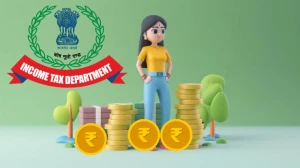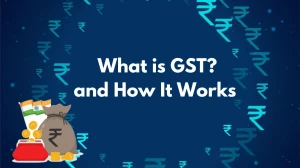
What is 87A Rebate in Income Tax? How is the Section 87A Rebate Calculated?
The 87A rebate in income tax benefits for resident individuals in India reduces their income tax liability up to Rs. 12,500 or Rs. 25,000, depending on the tax regime.
by P Nandhini
Updated Jul 23, 2024
On This Page
What is 87A Rebate in Income Tax?
The 87A rebate is a benefit given by the Indian government to help reduce the amount of income tax you need to pay. If you're a resident individual and your taxable income is below a certain limit, you can get this rebate to lower your tax bill.
For the fiscal year 2023-24, if your total taxable income is up to Rs. 5 lakh under the old tax regime, or up to Rs. 7 lahks under the new tax regime, you can receive a rebate. Under the old tax regime, the rebate can be up to Rs. 12,500, and under the new tax regime, it can be up to Rs. 25,000.
This rebate helps make sure that people with lower incomes pay less tax or no tax at all. The rebate is automatically applied when you file your tax return, so you don’t need to do anything special to claim it, as long as you meet the eligibility criteria.
How is the Section 87A Rebate Calculated?
The Section 87A rebate is calculated based on your taxable income and the applicable limits. Here’s how it works:
Check Your Taxable Income:
First, determine your total taxable income after applying all deductions.
Determine the Rebate Limit:
For the financial year 2023-24, the rebate limit is Rs. 12,500 under the old tax regime and Rs. 25,000 under the new tax regime.
Apply the Rebate:
If your taxable income is up to Rs. 5 lakh (old regime) or Rs. 7 lakh (new regime), you can get a rebate up to the specified limit.
- Old Tax Regime: If your income is up to Rs. 5 lakh, you can get a rebate of up to Rs. 12,500.
- New Tax Regime: If your income is up to Rs. 7 lakh, you can get a rebate of up to Rs. 25,000.
Rebate Amount:
The actual rebate amount will be the lower of the specified limit or the tax amount calculated before the rebate.
For example, if your tax before the rebate is Rs. 10,000 and you're eligible for a Rs. 12,500 rebate, you'll get the full Rs. 10,000 as a rebate, reducing your tax to zero. If your tax before the rebate is Rs. 15,000, you'll only get Rs. 12,500 as the rebate, so you’ll still need to pay the remaining Rs. 2,500.
The rebate is applied automatically when you file your tax return, as long as you meet the eligibility criteria.
Who is Not Eligible for the 87A Rebate?
Super senior citizens, who are over 80 years old, are not eligible for the Section 87A rebate. This rebate is only available to resident individuals and senior citizens between the ages of 60 and 80. If you fall into the super senior citizen category, you won't be able to claim this particular tax benefit.
What is the Eligibility to Claim a Rebate from Section 87A?
To be eligible to claim a rebate from Section 87A, you must meet the following conditions:
- Resident Individual: You must be a resident individual of India.
- Age Requirement: Senior citizens between 60 and 80 years old are eligible. Super senior citizens over 80 years old are not eligible.
- Income Limit: Your total income, after deducting eligible expenses and deductions, must not exceed Rs. 5 lakhs under the old tax regime or Rs. 7 lakhs under the new tax regime for the financial year.
- Tax Calculation: The rebate applies to the total tax amount before adding the 4% health and education cess.
How to Claim a Tax Rebate Under Section 87A?
To claim a tax rebate under Section 87A, follow these steps:
- Add up all your income sources for the financial year, including salary, interest, and other earnings to find your gross total income.
- Subtract any eligible deductions (like those for investments under sections like 80C) from your total income to get your taxable income.
- Calculate the income tax you owe based on the applicable tax slabs.
- Ensure that your taxable income is less than or equal to Rs. 5 lakhs (under the old regime) or Rs. 7 lakhs (under the new regime). If it is, you qualify for the rebate.
- The rebate is the lower of:
- Your total tax liability before adding the 4% health and education cess, or
- Rs. 12,500.
- When you file your Income Tax Return (ITR), the rebate amount will be automatically applied to reduce your tax liability.
- Submit your ITR with the claimed rebate included.
What is the Maximum Rebate Allowed Under Section 87A?
The maximum rebate allowed under Section 87A is Rs. 12,500. This means you can reduce your total tax liability by up to Rs. 12,500 if you meet the eligibility criteria and your income falls within the specified limits.
